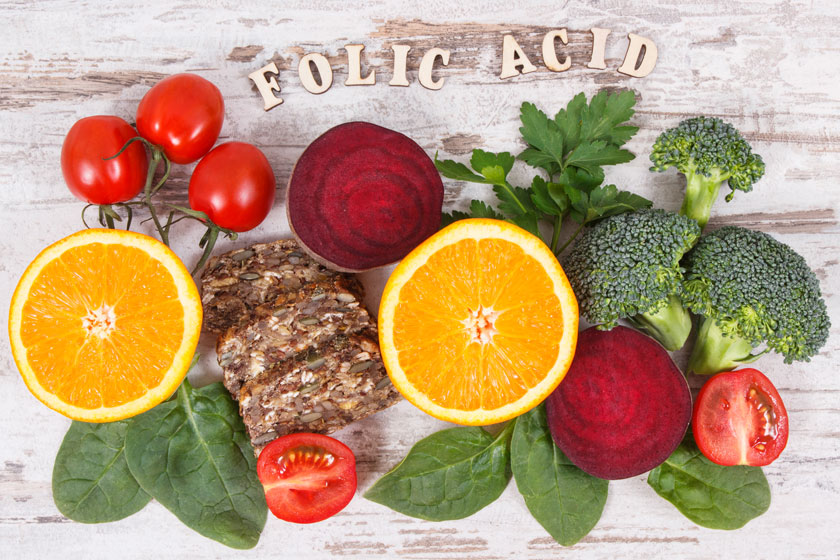Folic acid, a vital B vitamin, plays an indispensable role in the health and well-being of individuals, particularly as they age. Its significance cannot be overstated, especially when considering the unique nutritional needs and health challenges faced by older adults. Folic acid, or vitamin B9, supports numerous bodily functions, including DNA repair, red blood cell production and the prevention of age-related hearing loss. Moreover, it’s instrumental in reducing the risk of heart disease by helping to maintain low levels of homocysteine, an amino acid linked to cardiovascular issues. In this guide, we will walk you through folic acid benefits for seniors.
Cognitive Health and Folic Acid
One of the most remarkable benefits of folic acid is its ability to bolster cognitive function. Research has consistently shown that adequate levels of folic acid can help slow cognitive decline and potentially reduce the risk of developing Alzheimer’s disease and other forms of dementia. This is particularly relevant for older adults, as maintaining cognitive health is crucial for independence and quality of life. Folic acid achieves this by contributing to the methylation process, which is essential for brain function and the maintenance of neurological health.
Folic Acid and Heart Health
Heart health is a major concern for older individuals, and folic acid plays a critical role in cardiovascular wellness. By aiding in the reduction of homocysteine levels in the blood, folic acid helps prevent the build-up of plaque in the arteries, thereby reducing the risk of heart disease and stroke. This aspect of folic acid’s benefits is particularly important for those with a family history of heart conditions, as it provides a simple yet effective means of supporting heart health through diet and supplementation.
Folic Acid in the Diet: Sources and Recommendations
Incorporating folic acid into the diet is both simple and beneficial. Leafy green vegetables, fruits, nuts and fortified foods are excellent sources of this essential nutrient. Health professionals often recommend a balanced diet rich in these foods to ensure adequate intake of folic acid. For individuals who may have difficulty meeting their nutritional needs through diet alone, supplements can provide a convenient alternative. However, it’s important to consult with a healthcare provider before starting any new supplement regimen, particularly for those with existing health conditions.
Our Commitment to Wellness
At our community, we understand the importance of nutrition and wellness for maintaining a vibrant and fulfilling lifestyle. Our activity calendar and Military Veterans Program are just two examples of how we tailor our services to meet the diverse needs of our residents, ensuring that they have access to the activities and care that support their health and happiness.
In our Assisted Living community, we prioritize the nutritional needs and overall well-being of our residents. Understanding the pivotal role of health in older adults, we are committed to providing nutritional meals and exclusive services and amenities. Our dedicated team is always on hand to offer guidance on dietary choices that promote heart health, cognitive function and overall wellness.
By choosing us, you’re not just finding a place to live; you’re joining a community that cares deeply about your health and happiness. We invite you to experience the difference that a focus on quality, nutrition and personalized care can make in your life or the life of your loved one.







